There are moments on Ghana school trips where Rustic students really step into the shoes of someone else’s life. They work alongside deaf children doing service projects. They learn about various cultures in a country with more than 70 ethnic groups and about 80 different languages. And they visit the “door of no return” where millions of enslaved people were forced onto ships heading across the Atlantic Ocean.
“People end up getting a different perspective on what slavery is and what other human beings have gone through,” Country Director Musah Alhassan said. “You visit the male dungeons, the female dungeons – the condemned cells where slaves fighting to free themselves were kept… It is a very powerful experience and an emotional one whether you are black or white.”

Water rushes to shore by Cape Coast Castle where enslaved people were imprisoned before being forced onto boats.
Copyright: © 2016 Rustic Pathways
These historical lessons come near the end of the Great Ghana Adventure program. Before reaching this coastal area, students travel to other regions throughout the country to be immersed in the diversity of cultures and landscapes.
Alumna Perrin Duncan has fond memories of the sights and sounds she experienced when she traveled to Ghana with Rustic when she was 15-years-old. She says it helped her be a better global citizen.
Photo: Perrin Duncan
“I still vividly remember the smell of the spices from the giant market in Accra, the peaceful journey on canoes to the stilted village, the bright smiles and kindness of the children we had the opportunity to play with at the orphanage, and the sunset walk we took with the son of a village chief,” Duncan said.
For today’s Rustic students, the journey begins in the capital of Accra.
On the Road in Ghana
The students start their program by touring several parts of Accra. Alhassan says this includes visits to poorer sections of the region, including the fishing village in Jamestown. There teens learn about the impact of British colonialism and government neglect. Alhassan says this gives students perspective about the “real Ghana” – not just the tourist regions.
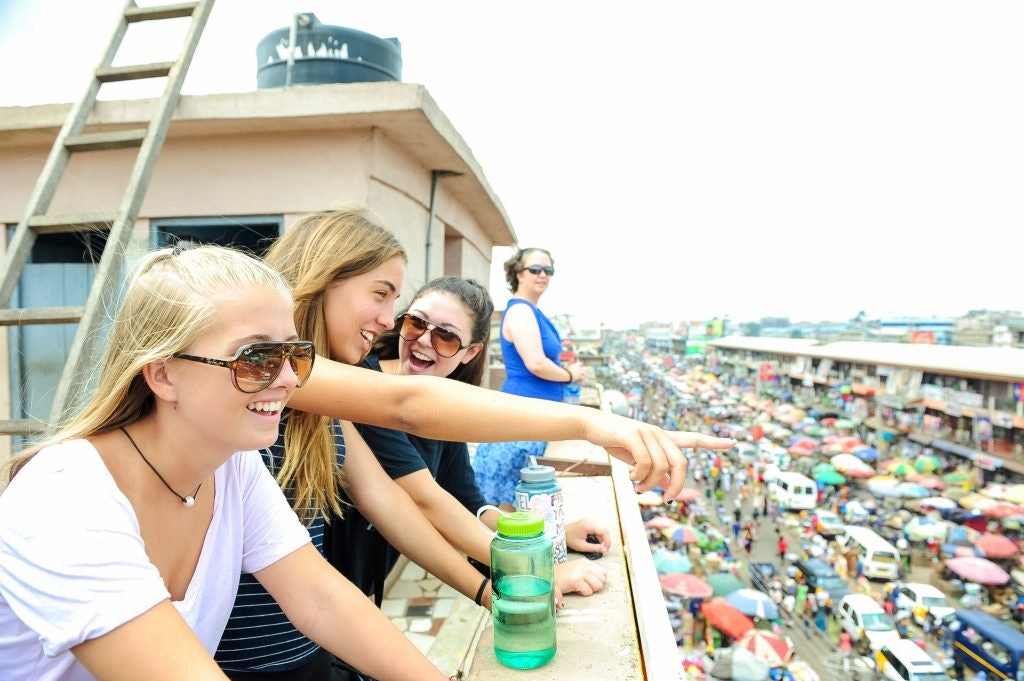
Rustic students get many different perspectives of life in Ghana.
From there, the students head north to the Muslim-majority city of Tamale. Much of Ghana is Christian, but this city – the third largest in the country – is 90-percent Muslim. Alhassan says students get another perspective of Ghana here since the residents have a different language, customs and clothing.
A highlight of the time spent in this region is a visit to the School of Music and Dance. There students learn about different Ghanaian instruments like the djembe drum. They are each paired with a local student who gives one-on-one tips and lessons. Rustic teens then get to try their hand at playing the instruments.
Afterwards, the students head to Mole National Park to see animals like elephants, hartebeests, and baboons. This is a special area for Alhassan since his father was the longest-serving ranger in the park’s history.
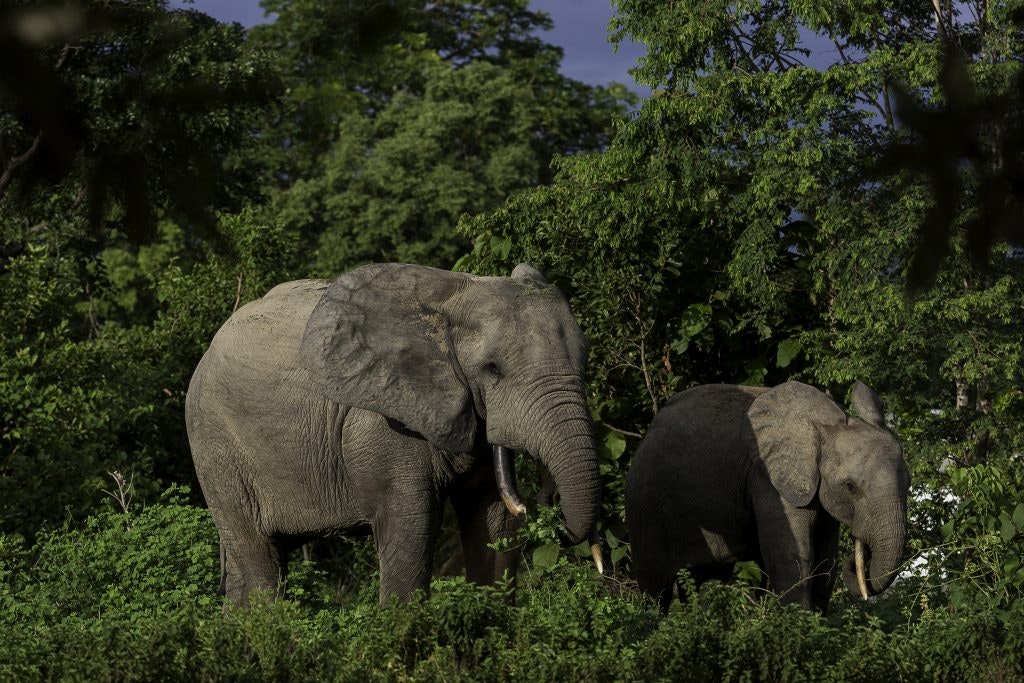
Elephants roam in Mole National Park. Copyright: Rustic Pathways
“My favorite part of the program is the safari in the northern part of the country since this is where I was born and raised,” Alhassan said. “I love nature. I love the safari, and I know some of the names of the animals.”
In the park, the students view these animals by jeep, on foot and on a canoe. Afterwards, the students travel south to see the Kintampo Waterfalls and then visit Kumasi in the Ashanti region of the country.
The Ashanti people are the largest ethnic group in Ghana. They created the wealthy, gold-rich Ashanti Empire in the 1600s. Rustic students learn about their culture and powerful king – Otumfuo Osei Tutu II Asantehene, who made a commitment in 2019 to protect the environment in the kingdom.
The students visit a museum to learn about the history and lands of the Ashanti people and then try weaving traditional cloth, kente. Afterwards, they travel south again to get to Cape Coast on the Gulf of Guinea.
A Meaningful Service Project & Lessons About Slavery
In the Cape Coast region, the students take part in service work at the Cape Coast School for the Deaf and the Blind. Rustic students have supported this school for years, doing many projects to improve the educational infrastructure. The students with hearing disabilities participate in the projects as well, while the students with visual disabilities are close by.
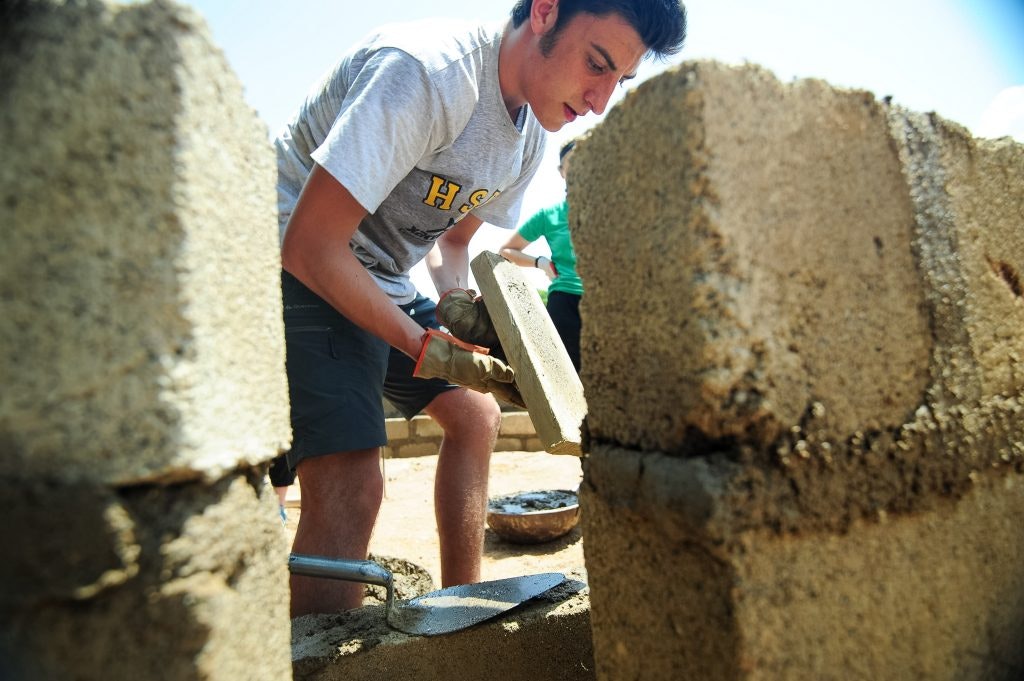
A Rustic student works on a construction project in Ghana.
This volunteer work goes far towards helping keep this school open and thriving. In the last couple of years, the school has faced challenges as school facilities have deteriorated and classes have become overcrowded. The local Joy News aired a report in May 2021, pleading for more government assistance for the school. In the absence of adequate government help, the Rustic students’ volunteer time is even more needed.
After completing a weekend filled with this service, Rustic students enjoy coming together with the whole community for interactive activities, including playing music.
While in the region, the students also get a chance to overcome any fear of heights they may have by crossing a number of canopy bridges in Kakum National Park. The walkways connect seven treetops and provide stunning views of a rainforest and its animals.
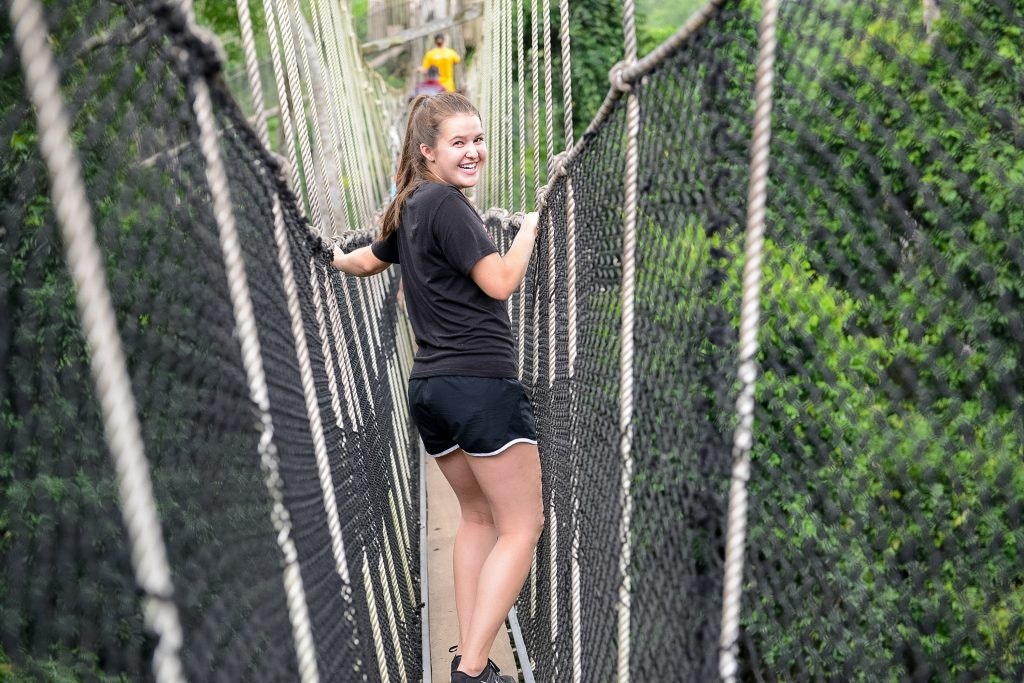
A Rustic student takes a stroll across a canopy bridge in Kakum National Park.
The beautiful views of nature come before perhaps the most poignant moments of the program – the visit to Cape Coast Castle to learn about slavery.
The dungeons the students see had no ventilation or windows – were often filled with human waste and as many as 200 people per room. If the enslaved people survived stays in the dungeons, they were pushed through “the door of no return” where they got their last view of Africa.
After this visit, students regroup and celebrate the strong spirit of the Ghanaian people by watching an evening performance of Ghanaian dance. This is followed by a visit to the Accra Art Center and a Rustic ties discussion about the students’ experiences.
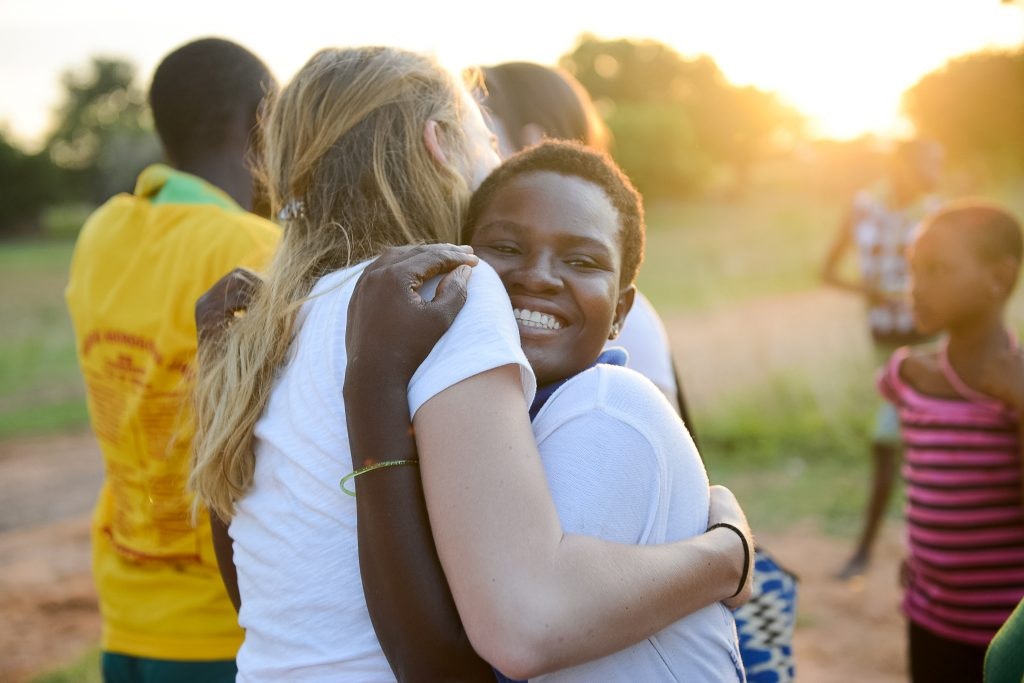
Copyright: Rustic Pathways
For Perrin, her Rustic trips to Ghana and then later to Tanzania gave her a better understanding of the world as she moved into adulthood. She utilized that when she pursued her undergraduate and master’s degrees in college and went on to work for an experiential education organization in Bangkok, Thailand.
“They opened my heart and mind to new possibilities,” Perrin said. “If every young person had the opportunity to leave home and see the world through a new perspective, I have no doubt our future world would be a better place.”
For more information on Ghana, check out our beginner’s travel guide to Ghana:
